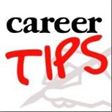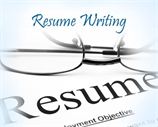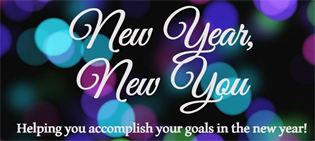To help demystify what effective networking requires, I have identified three key questions that each well-intentioned person needs to answer before beginning his or her quest. With these answers in-hand, any networker’s efforts will be rewarded. To learn more click here
Haven’t had an interview in a few years? Chances are your next one will be carried out via video conference. According to recent studies, around 60 percent of employers have made the switch to video interviews as either a primary or exclusive method for vetting candidates.
Which begs the obvious question: How should you prepare for an job-interview experience you’ve never encountered before? Are video interviews comparable to face-to-face meetings, or are they a different affair altogether? READ MORE…
In other words, take a cue from Gandhi
It’s that time of year again. New Year’s Day is a time of maximum hope and optimism. It’s a day when such hope and optimism grant us permission to admit that all is not right in our world–frequently because we’re not doing things the way we aspire to do them. Ergo, the New Year’s resolution: the vow that we can achieve what we imagine we can and should achieve….READ MORE
What really makes a great resume for today’s job market?The use of a branding statement, a tag line or two, relevant keywords/key phrases, and a situation/action/results writing style can actually increase the return of your resume. Let’s review why each are increasingly important for job seekers competing in today’s highly competitive job market.
1. Branding Statement
Personal branding is hot – very hot! Once paralleled with top business professionals such as Bill Gates, Donald Trump, and let’s not forget Oprah, personal branding strategies are now applied to job seekers. Branding is not made up of one thing, but of many. According to Wikipedia.org, personal branding “is not limited to the body, clothing, appearance and knowledge contained within, leading to an indelible impression that is uniquely distinguishable.”
Can branding techniques be used for job search purposes? Absolutely. Start by using a branding statement within your resume. Typically a one or two-liner, a branding statement could be an umbrella statement relative to the broadness and depth of you.
To develop a branding statement, take your 15-second elevator pitch and rework it to include key points relevant to talent recruiters. For those who don’t have an elevator pitch, write a short paragraph (4-5 sentences) about your professional career and value. Then, boil the paragraph down to a couple of sentences. Lastly, fine-tune the statement until it contains the exact wording that helps sell you to the hiring community.
2. Using Tag Lines
If a branding statement as a book title, a tag line would be the subtitle.
Tag lines are terrific, enabling those who review your resume to immediately see your value… all from a mere skim. Oh sure, resume management systems are certainly ruling the roost when it comes to resumes these days, but real people are actually out there reviewing soft and hard copy resumes, so definitely write your resume for those pesky RMS systems, and don’t forget about the human beings, too.
Taking a variety of forms, tag lines can be a group of keywords or a sentence fragment. The first example tag line below (Award-Winning Designs – Community Project Lead – Travel Internationally) was perfect for this client. She was targeting a high-end, executive role for a major community development company with project interests on a national and international level. Certainly we could have included this information within the intro statement, or elsewhere, but a more strategic placement adds visual interest and introduces a bit more white space to attract readers’ eyes.
My favorite use of tag lines is to include a quick “content snapshot” where you would otherwise see blank space. For example, readers would learn this individual is a turnaround expert by simply reading the resume; but honestly, who reads an entire resume these days?
Tag lines are another way for readers to quickly learn more about you and what you have to offer, putting you one step closer to being called for an interview.
3. Keywords & Key Phrases
Want to know an insider’s secret to identifying ideal keywords and key phrases for your resume? Print those ideal job ads and get out a highlighter. Highlight job tasks, concentrating on nouns/actions. Then, cross-reference the highlighted keywords against your resume. Is there an important keyword (skill) missing from the resume? Does the resume need a bit more tweaking to accommodate more relevant keywords and key phrases? Sometimes a job description is filled with poppy-cosh, and by focusing primarily on those specific skills (keywords), you’re somewhat getting rid of the “content fat,” enabling you to see what’s ultimately important to the hiring company.
4. Situation/Action/Results (SAR) Writing Style
A SAR writing style introduces achievements into a resume, adding numbers and percentages to add visual breaks in text for readers’ eyes… it’s that simple. Hiring managers and recruiters love achievements within a resume because each represents an action and result on the part of the candidate.
Introduce more achievements into your resume by focusing on your specific job area, department, or the company as a whole. Think about situations you faced during your tenure, how you responded, and the results from each action. Did you increase sales? Save the company money? Cut dependency on a specific resource? If you weren’t in a lead/management role, maybe you assisted a team with achieving a sales goal or securing that million-dollar client.
Some actions seem small, but in the end, may have resulted in a big impact. For example:
Provided extensive team support during the development and integration of a new incentive program offered to the SE sales team; program added $3.2 million in new sales and was later introduced to other US-based territories.
______________________________________________________________
If you are worried about writing a résumé, or struggling with the task, you’re not alone! Are you looking to change fields or just give your résumé some more meat? Research suggests that your résumé has less than 20 seconds to make the right impression, so it must be eye-catching and easy to read. Click here to register!
The New Year is a time when we consider our current status in life and resolve to make changes. For many, a transition to a new career may be one of those resolutions. Each year my clients ask me about career trends for the upcoming year. VentureReady LLC has developed a list of trends and tips you should consider in order to make the most of your career search in 2015.
2015 Career Trends
Increased Hiring – Unemployment has decreased to its lowest rate since 2008 according to the board of labor and industry. There are less job seekers who have been searching for employment for more than one year. Therefore, if you are seeking employment because you have been recently laid off or are seeking a change, 2015 is a wonderful time to start search for a new opportunity.
Increased Resignations – More people will resign from positions that they are unhappy with. This is a good sign as it shows professional are more confident in successfully attaining another job with higher pay or has other benefits to fit their lifestyles (i.e. work/life balance). A word to the wise – It is still a good practice to find another job before quitting your current position.
Higher Wages – There is a trend toward higher wages in 2015. If you are worth more than what you are currently making, go to resources like payscale.com and salary.com. Armed with this information, you will be able to negotiate more effectively. Your manager could deny your request, but you have a higher chance of getting a raise than in previous years.
LinkedIn – More employers and professionals are using LinkedIn as a tool for seeking candidates and searching for a new position. Recruiters and employers my still reach out to you for positions even if you are not actively seeking employment. LinkedIn provides you the opportunity to share more information about your accomplishment by allowing links to projects, videos, and slide show presentations that display your aptitudes.
Continuing Education – More professionals are building developing new skills with advanced degrees, certifications and training. Employees are more optimistic about the economy rather than being concerned with losing employment. Employers are looking to develop employees in order to keep them happy because they realize that with that talented candidate can be found with ease even when they are not actively seeking positions due to social media sites like LinkedIn.
2015 Career Search Strategies
These strategies will assist you with your career search in 2015. Use the tips below to develop an action plan and you will see results sooner than not having one because you will be able to track your progress.
Network – You will have a lot of competition when you allow for an advertised position. Tailoring your resume or CV to the job description will help you stand out, but networking will give you an edge that most candidates will not have.
Use your personal referrals and online contact in order to come to the attention of hiring managers. Personal contacts can be family members, friends, colleague and prior managers, or supervisors. Follow the company on social media sites like LinkedIn, Twitter and Facebook, join the same communities and groups. Find out how the company could benefit from your education and/or experience.
Tap into associates through volunteer activities and professional associations. You can get a chance to make a positive impression with a decision maker while chatting with him/her during an association meeting or event. During the discussion you could mention that you can mention what your skills are and that you are looking for an opportunity.
Interviewing – Mastering the interview is just like mastering any other skill. The more you practice, the more confident and proficient you will become. Research the type of questions you may encounter during the interview based on your industry and do a mock interview with a friend, or career specialist. Use your contacts to find someone who knows the company/industry and ask them what the current issues are.
Show the interviewer how well you’ve researched the role and, be ready to demonstrate how you can make a real difference in the role. That’s what a hiring manager wants to know. VentureReady LLC’s Career Readiness Consultants are advocates for bringing career portfolios to an interview. This booklet is a powerful tool that will have samples of your work that brings proof of your accomplishments and experience. A career portfolio should also have work samples so that the hiring manager can get a clear picture of what you will bring to the company and the position. This doesn’t mean you won’t get a difficult question during the interview, but it does mean you be in a position to answer it with poise and confidence.
Ask the interviewer questions. This will not only show that you are interested in the position, but also that you were paying attention. The interview will not reveal everything about the position. This is also a chance to get more information on the position, the management style and the company culture that you cannot get from online research.
It is also a good idea to have a 90-day plan when you interview with the hiring manager. This will give the interviewer a picture of you performing the job. Click here for more information on 90-day plans
Temp Agencies – Building a strong relationship with the agencies will ensure your success in securing a position. You must be the first person that comes to mind when a new assignment comes in. You can be that person by meeting the staff at the agency face-to-face. Prove yourself as a reliable worker, by taking any and every assignment offered at first. Occasionally call them and inquire about available assignments.
Blogging –If you want to get your name out there, help build up contacts and start networking try blogging. It can be a challenge to fit your dream career around your commitments, but there’s often more than one way into a role. If you are a subject matter expert, blogging will help you to share that knowledge on a large scale and establish you as an expert in the industry.
LinkedIn – Maximize your LinkedIn experience. Do not simply post a profile and assume hiring managers will flood your inbox. Join groups and associations with shared professional interests, and then contribute to the discussions.
Be Patient – Every situation is different but on the whole most people do have to take a salary cut, before they can move forward in a career transition. It is imperative to see a career transition as a long-term process.
Corporate training programs such as trainee roles tend to have fixed salaries with little or no flexibility. An abstract job search may give you with more negotiation power by appealing to employers with your experience and transferable skills.
Relocating – When deciding on relocating for a position you must decide on how far are you willing to move. You should consider if there are any areas of the country or the world you would like to go to as well as area you do not. Clarifying where you want to go will help to focus your job search. Why do you want to relocate? You are the only person who can decide if the transition is worth it.
Returning to the Workforce – This year we had clients who were returning to the workforce after a long illness. They were concerned that they would have to reveal their health issues to the employer. We inform our clients that their illness should only be revealed on a need-to-know basis.
If the past illness affects your performance on the job, then it’s better to inform the employer upfront, then to wait until you are hired. If you have overcome this challenge, then there is no need to bring it up. If you have gaps in your career history because of it, you can mention it in the interview, but let me know that this is a past challenge.
If you are returning to the workforce after caring for young children you’re an illness in the family, this is an understandable gap. Work on your explanation for the gap in employment so you are not taken off guard by the question. Preparing for the question will also allow you to be confident in your answer and enable you to reassure the employer that you are ready to reenter the workforce. You have also gained transferable skills. If you need assistance with identifying these skills, you should find a certified career professional.
~~~~~~~~~~~~~~~~~~~~~~~~~~~~~~~~~~~~~~~~~~~~~~~~~
Katrina Brittingham, M.B.A., MSA, CPRW is the owner of VentureReady LLC. Katrina’s skills and areas of expertise include resume and cover letter writing, career and interview readiness coaching; creating dynamic 90-day business plans and thank you letters. She received two Master degrees in Business Administration and Accountancy from Rosemont College and the University of Phoenix. Katrina is a certified professional resume writer and is an active member of the Professional Association of Resume Writers and Career Coaches as well as the National Resume Writers Association of which she is a member. She is a contributor to the best-selling 50 Seeds of Greatness as well as the author of career related manuals including, Create an Interview Winning Résumé and The complete Interview Readiness Guide. For more information or to book Katrina visit www.ventureready.net, or email her atinfo@ventureready.net.
SERVICES INCLUDE:
- Start-up Strong —Business Coaching
- Flex Coaching
- Business Growth Coaching
- Business Building Concierge
- The ExecutiveGPS
Conference
VentureReady
Speak to a Career coach today: Schedule online
(888) 712 4956
info@ventureready.net
Brand Mission
Our mission is to never see another entrepreneur fail. Entrepreneurship is the beautiful, challenging journey of bringing your true self into the world in a way that serves others while also serving your life goals.



